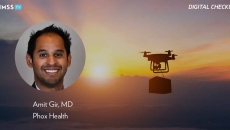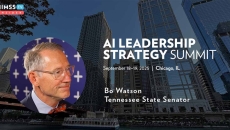Population and Public Health
Innovaccer’s healthcare data unification and analytics will be combined with Tawuniya’s experience in health insurance and risk management.
Dr. Daniela Carvalho, pediatric otolaryngologist at Rady Children's Health in San Diego, shares insights on performing California's first pediatric Nucleus Nexa cochlear implant and what this means for the future of pediatric hearing care.
Its chest X-ray analysis AI tool is the first to receive Europe's clearance for use in children aged 0-3.
By merging radar sensing with AI, Sumit Nagpal, Cherish Health founder and CEO, explains that the company's digital health tool enhances seniors' safety at home, measuring biometrics and contacting responders when necessary.
Ishani Ved, director of transformational population health and outcomes at Saint Peter’s Healthcare System, discusses the implementation process for a population health management platform.
Amit Gir, CEO of Phox Health, highlights the company's partnerships with UW Medicine, Alaska Airlines and The MetroHealth System to deliver specialty medications in select states, and its plans to expand into drone-based delivery.
Combining SteadyMD’s platform with DocGo will result in more productive delivery of patient care.
AI systems demand massive energy infrastructure, and Tennessee State Sen. Bo Watson says his state has allocated $60 million to develop alternative energy sources to help meet AI's power needs.
Dr. Meera Mani, general partner of Town Hall Ventures, discusses how the firm's Fund IV will use investments to help companies bring new technologies to underserved communities.
Martin Gaynor, professor emeritus at Carnegie Mellon University, discusses a study on obstetric care changes after mergers with larger systems that may be farther away but can offer more specialized care.









